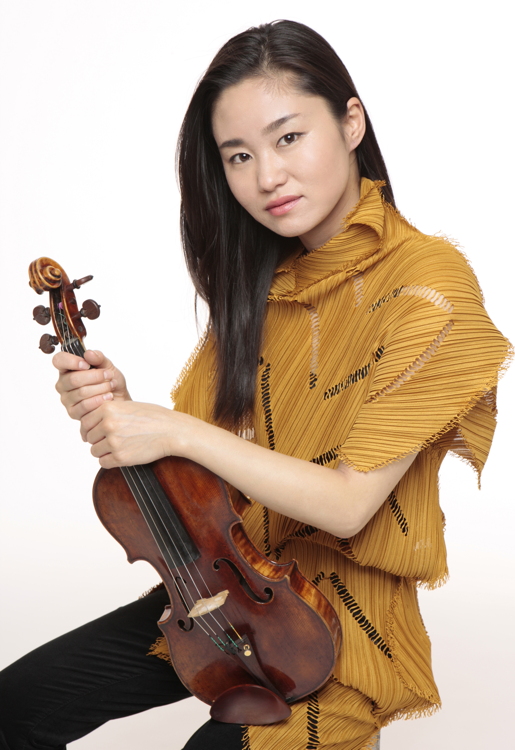 United Kingdom Brahms, Sibelius: Sayaka Shoji (violin), Philharmonia Orchestra / Vladimir Ashkenazy (conductor). St David’s Hall, Cardiff, 27.11.2019. (PCG)
United Kingdom Brahms, Sibelius: Sayaka Shoji (violin), Philharmonia Orchestra / Vladimir Ashkenazy (conductor). St David’s Hall, Cardiff, 27.11.2019. (PCG)

Brahms – Violin Concerto
Sibelius – Symphony No.2
It was a pleasure, as always, to welcome the Philharmonia and their conductor laureate Vladimir Ashkenazy back to Cardiff. Over the years, this combination has offered audiences in the Welsh capital a whole series of performances of superlative quality, and this event proved to be no exception.
Back in the early 1980s, Ashkenazy and the Philharmonia produced a series of digital recordings of the complete Sibelius symphonies, which proved to be one of the mainstays of the early CD catalogue. Here, over thirty years later, we were given the chance to hear the artists once again in Sibelius’s Second Symphony. In many ways, their interpretation had not conspicuously changed in the intervening period, as I confirmed the following morning by listening to that Decca recording. The first movement remained fleet-footed and mercurial, and the third sizzled with energy in the scherzo sections. But there were also some new touches. In the second movement, with its quizzical tempo direction Andante ma rubato, the ebb and flow of the music was now more closely integrated. It began more slowly and mysteriously but gathered momentum in an inexorable fashion as the movement progressed. In the triumphant finale, too, there was a more deliberate approach. The push forward was less energetic than before but instead produced an effect of massing grandeur and gathering weight. This was particularly noticeable in the two extraordinary passages where Sibelius seems to take inspiration from Bruckner. He builds up an inexorable repeated ostinato which finally comes close to the world of the minimalist scores of composers such as Glass and Adams; the skirling woodwinds in the bars just before the final coda were absolutely thrilling. These new refinements and insights transformed what had in the 1980s already been a very good performance into a really great one. I am glad to say that the audience was large (not always the case in the hall this season), well-behaved (minimal coughing and no intrusive applause), and properly enthusiastic with loud and sustained cheers at the end for both orchestra and conductor.
There had only been one work in the first half of the concert, but that was a substantial one. Brahms’s similarly monumental Violin Concerto had a stunningly good soloist in the shape of Sayaka Shoji. There can be a tendency in some performances for the composer’s heavyweight scoring to overpower the tone of a solo violin. There was no danger here: Shoji’s well-projected and plangent tone thrust forward from the texture in both the ornamental passages and the emotionally lyrical ones. There was a real sense of give and take with the orchestra. Some of the woodwind playing also came over with an unexpectedly light touch, which illuminated the tuttis admirably. It is true that there were moments in the Adagio when the music became somewhat becalmed, but this was the fault of Brahms rather than the performers here. Peter Reynolds’s programme note rather uncomfortably reminded us that the composer himself self-deprecatingly described the movement as ‘feeble’. The results were beautifully poised nonetheless, and the finale sparkled with life and enjoyment.
Sayaka Shoji gave us an unaccompanied Bach chaconne for an encore. As is too often the case, the artist did not tell the audience what she was to play. (My crusade on this vexing subject may in due course bring about a conversion…) But this was the only blemish on an evening of unalloyed pleasure. Vladimir Ashkenazy may be well into his eighties, but I hope he will continue to visit Cardiff regularly to delight us with performances of this calibre for many years to come. In the meantime, he and the orchestra are continuing their tour with appearances in Basingstoke on 29 November and Cambridge on 30 November. At the latter concert, Shoji will be repeating the Brahms Violin Concerto, and she will return to the orchestra for further appearances in February 2020.
Paul Corfield Godfrey
For more about the Philharmonia Orchestra click here.
